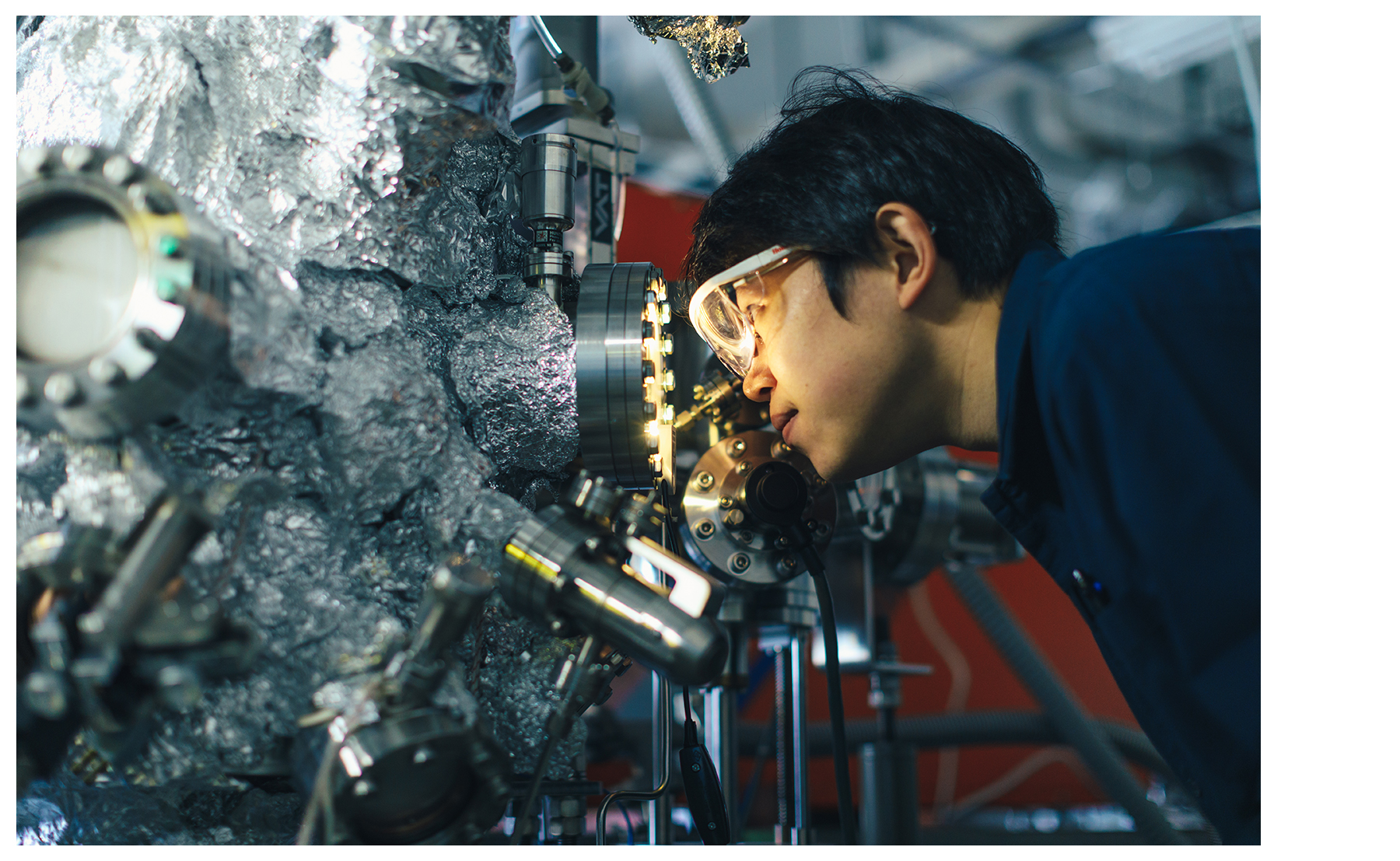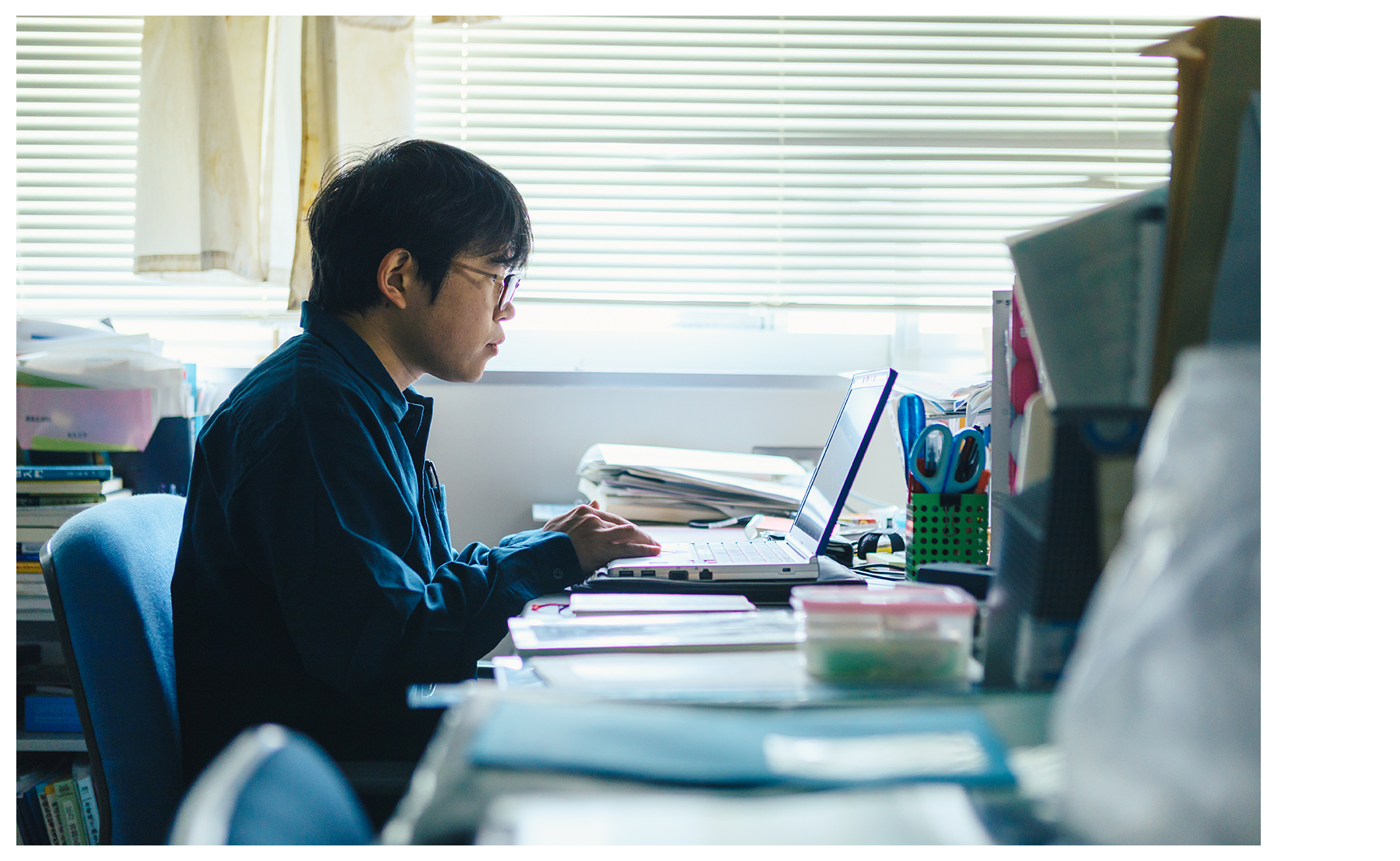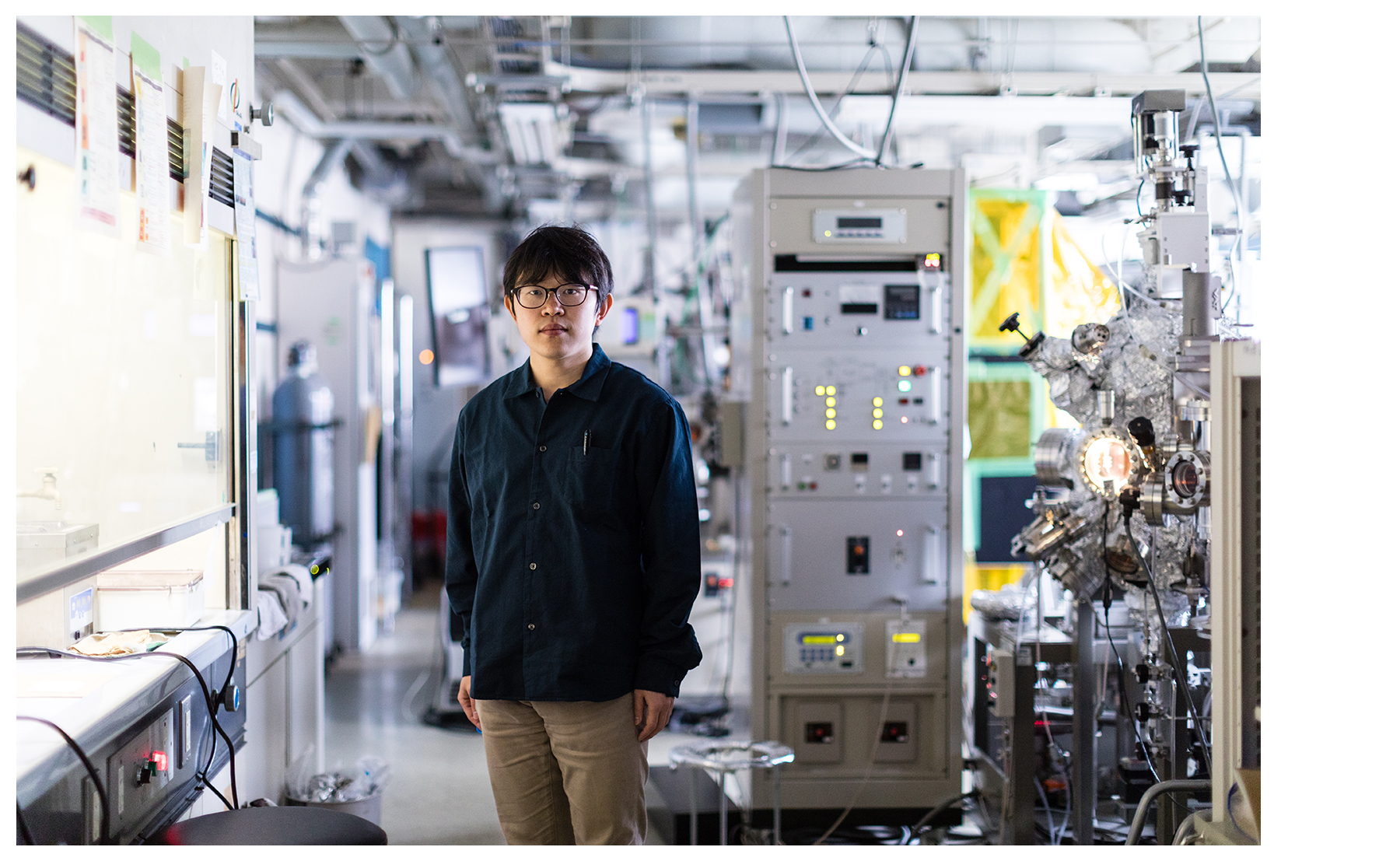I am working on experiments to find novel and useful materials, mainly targeting at crystalline compounds. What arises in your mind when you hear the word “crystal”? Some might think of jewels like diamonds, and others might remember the cubes of salt they learned in junior high schools. These crystals are sparkly to our eyes because enormous numbers of atoms from thousands to the Avogadro constant (6.0 × 1023) are aligned well in them. The fact that the atoms are aligned not artificially but naturally is interesting. In the field of solid state chemistry, we set up a suitable situation so that the crystals preferably grow. That is, what we scientists can do in reality is only to help the atoms to line up though we often claim that we can align them.
I often use a technique called “epitaxy” to promote the atoms to line up well where I supply the atoms on a single crystal (substrate) with a similar pattern of atomic arrangement with the crystal I want to get. Then, the supplied atoms preferably move along the atomic arrangement of the substrate and form a crystal. If the condition is suitable, I can get a crystal of the targeting compound. Because the thickness of the formed crystals is usually around a ten-thousandth millimeter, we call them “epitaxial thin films”. One of the methods I use to supply atoms on substrates is blowing up atoms by laser irradiation on a starting material placed in a vacuum chamber. The machine for this method is larger than me despite the simplicity. For the experiment, I need to choose a crystal that is expected to show useful and/or interesting properties from countless patterns of combinations of composition and crystal structure. After the growth of the crystals, I observe the atomic arrangement in them and measure electrical properties and so on. If I can find useful crystalline material, it is a great success. However, it is not a failure even if the obtained crystals do not show expected structure and/or properties. It is essential to consider the results carefully because there should be a seed of new findings if you try something never done before.





